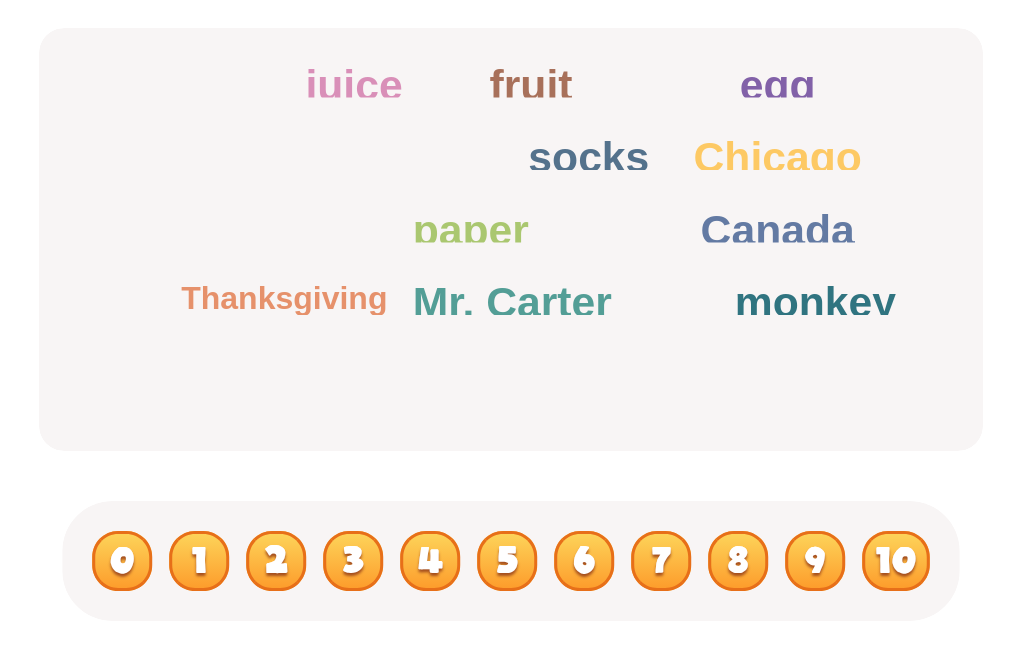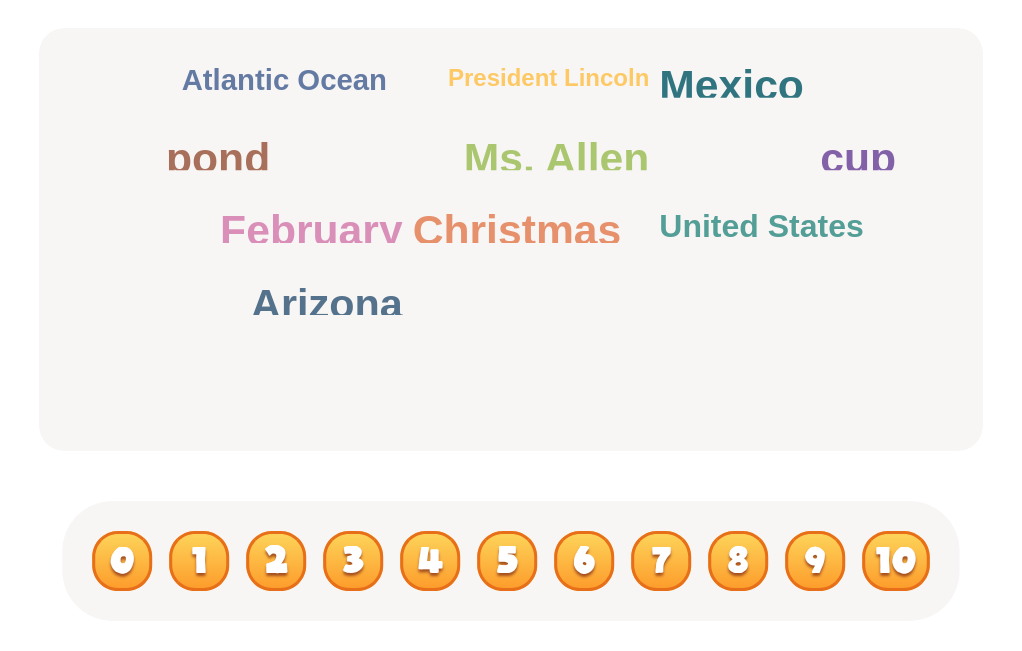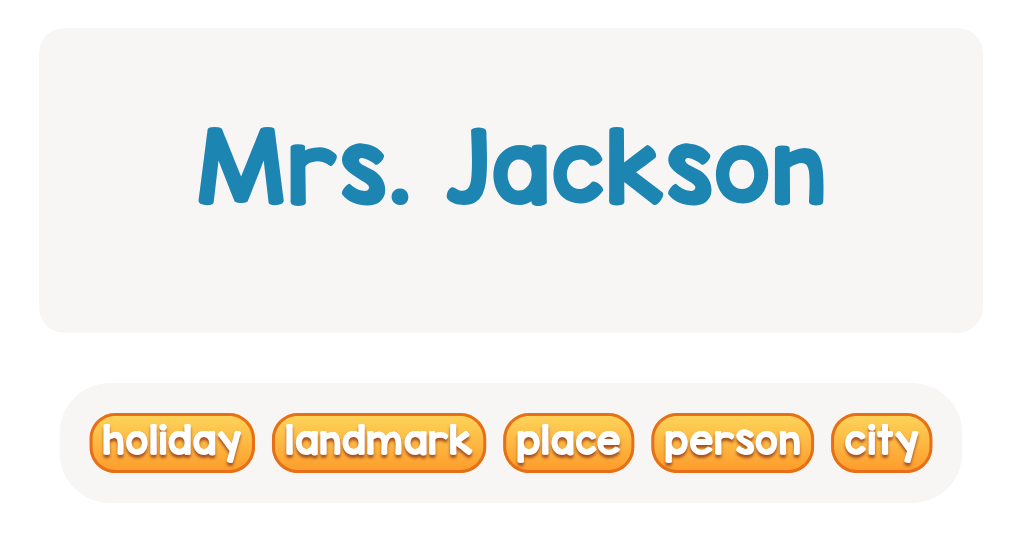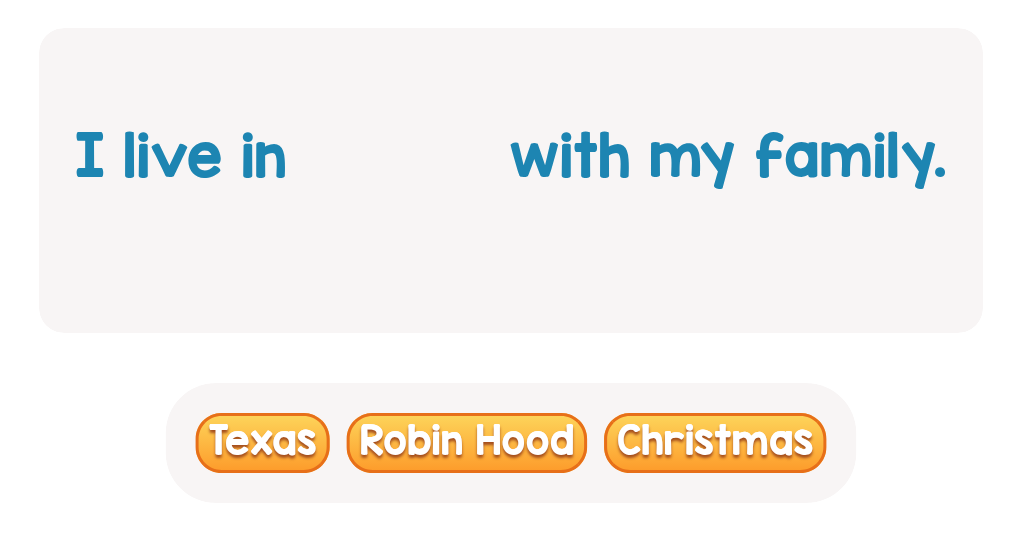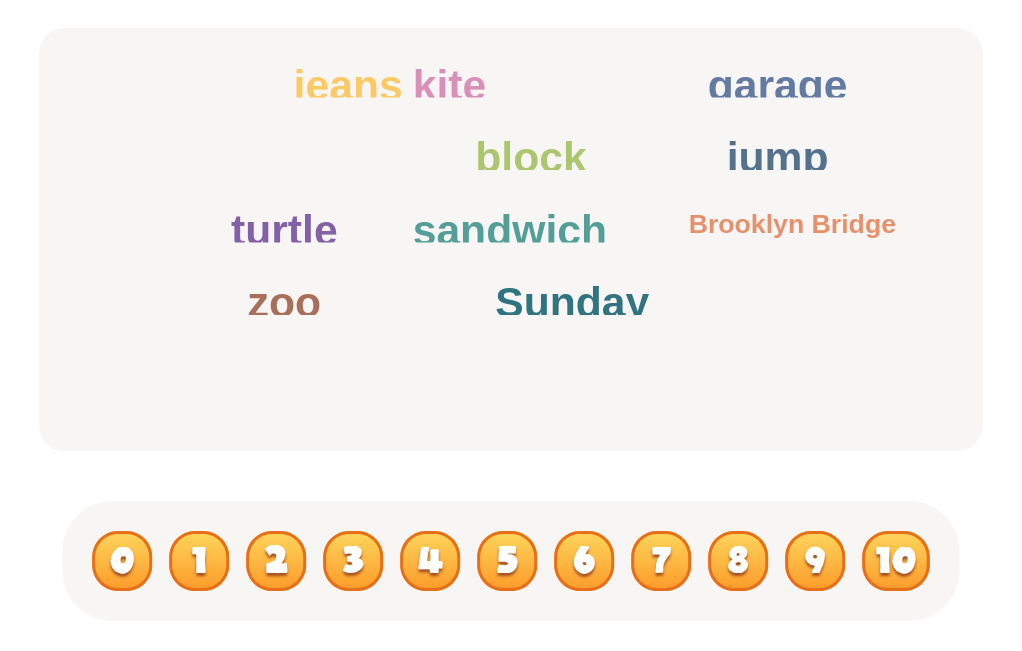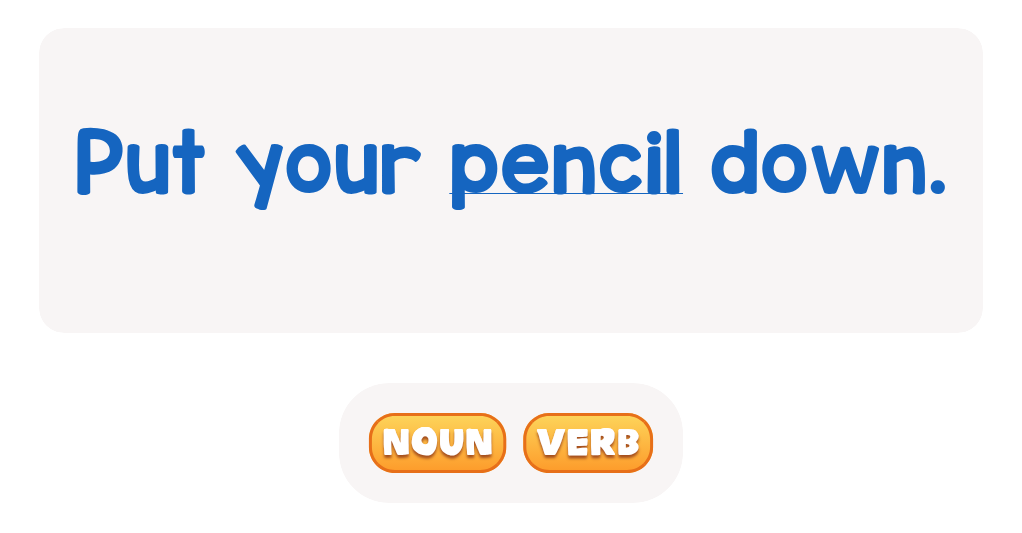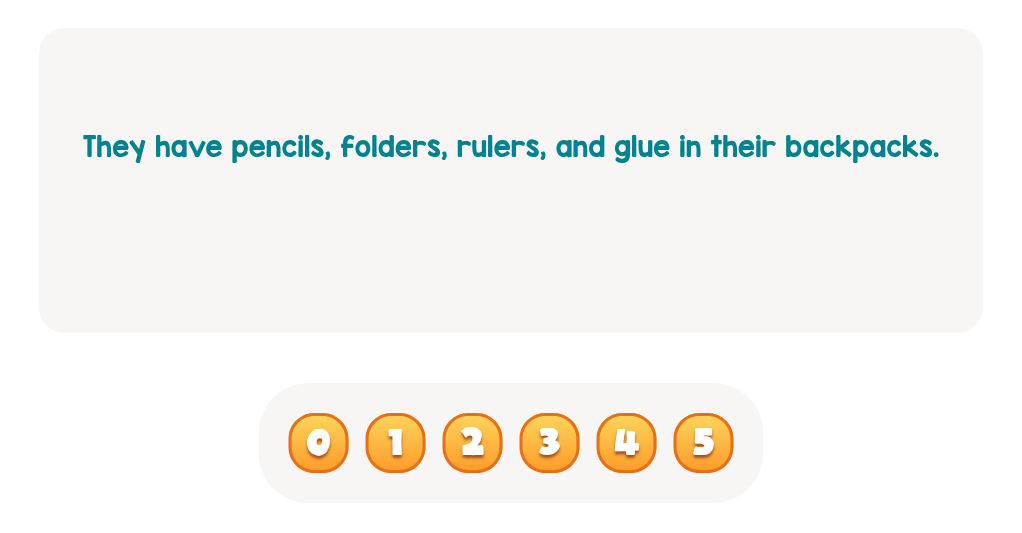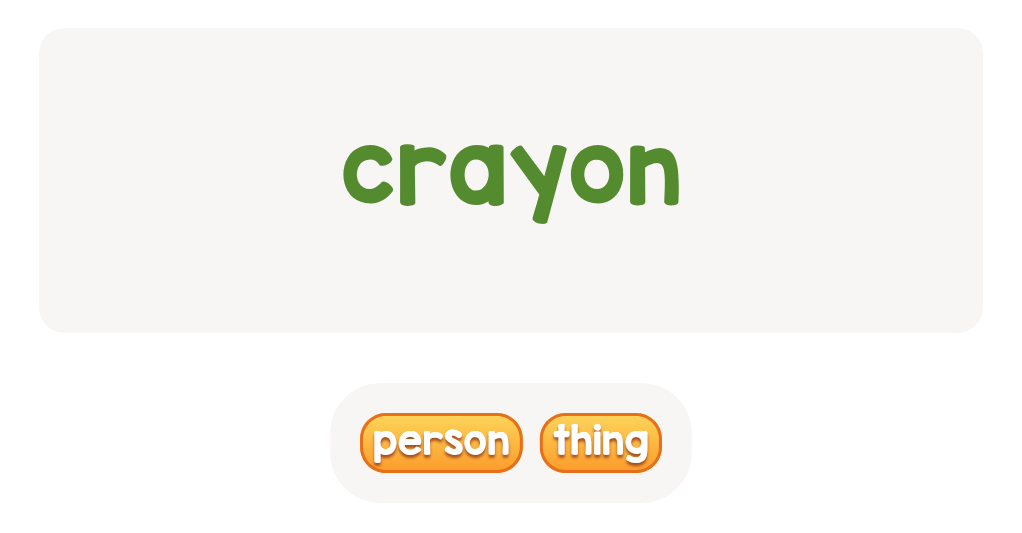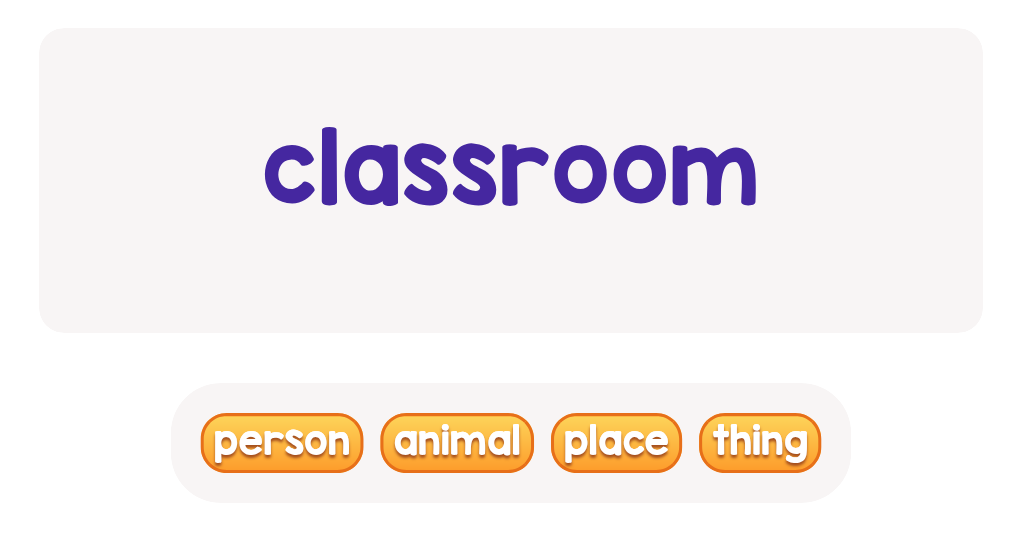Alphabet Recognition Grammar Worksheets for Ages 4-6
3 filtered results
-
From - To
Discover our engaging Alphabet Recognition Grammar Worksheets, designed specifically for children aged 4-6. These worksheets foster essential skills in alphabet recognition, helping young learners identify letters while enhancing their understanding of basic grammar. Our fun and interactive activities are tailored to support early literacy development, making learning enjoyable and effective. With colorful visuals and stimulating exercises, children will gain confidence in their abilities as they practice letter sounds, letter associations, and basic sentence structures. Ideal for both classroom use and home learning, these worksheets provide the perfect blend of education and entertainment, setting the stage for future reading and writing success.
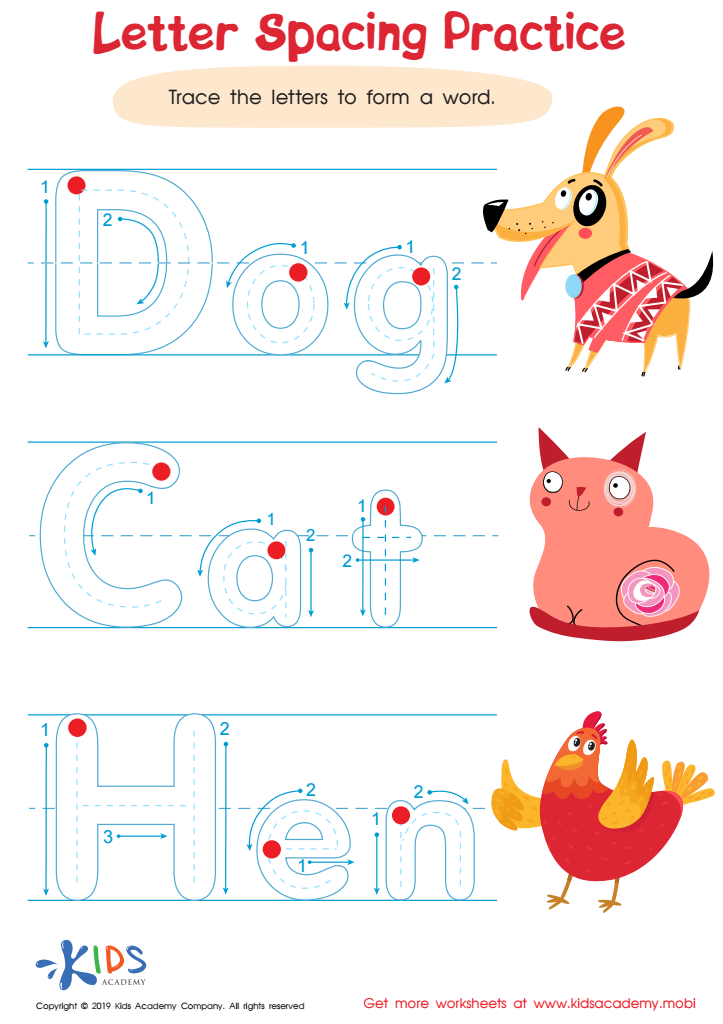

Letter Spacing Practice Worksheet
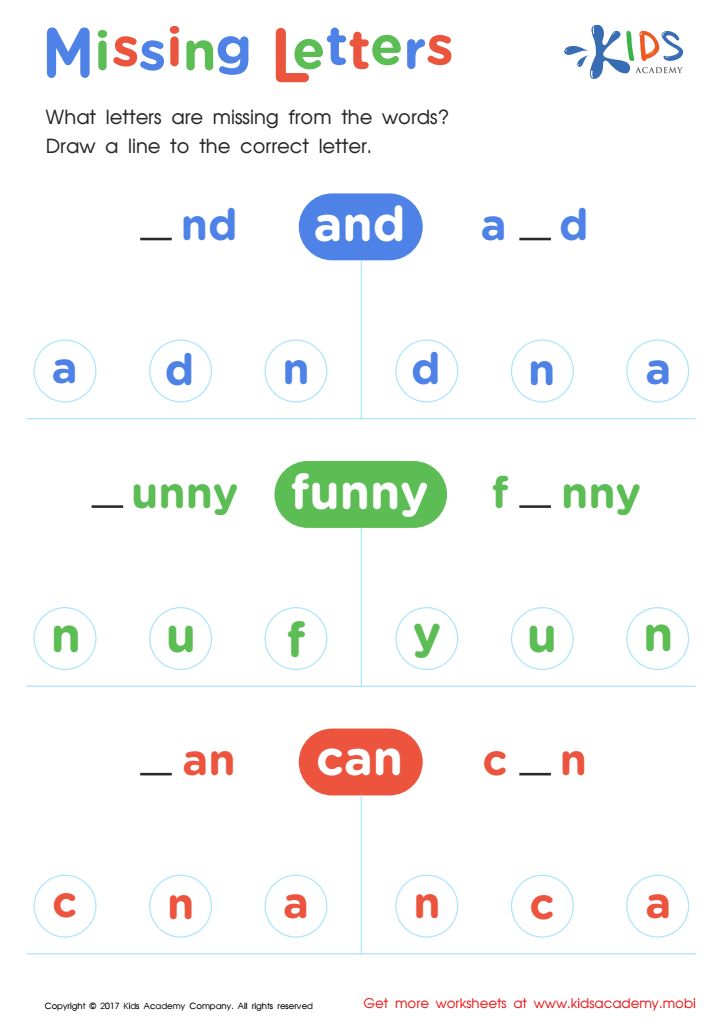

Missing Letters Worksheet
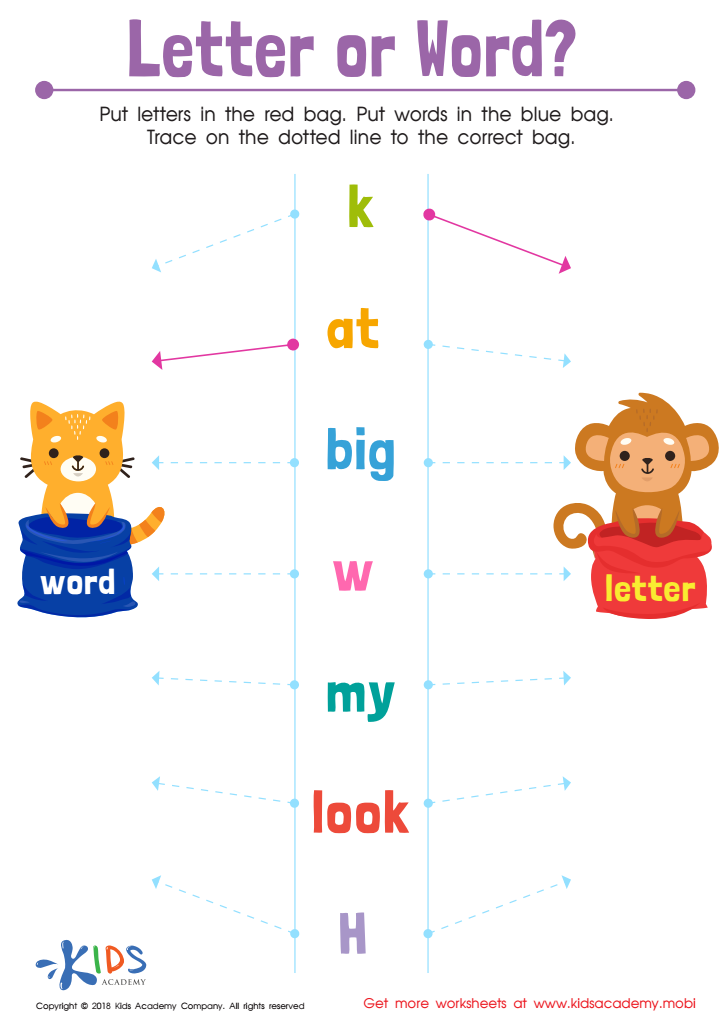

Letter or Word? Worksheet
Alphabet Recognition is a crucial foundational skill for children ages 4-6, forming the basis for literacy and language development. Parents and teachers should prioritize this skill because it sets the stage for reading and writing proficiency. Recognizing letters helps children to decode words, a necessary step for reading fluency. Mastery of the alphabet also contributes to children's ability to spell and write, impacting their overall academic performance.
At this age, children's brains are remarkably receptive to new information. Engaging them in alphabet recognition through interactive activities—like songs, games, and hands-on crafts—makes learning enjoyable and effective. By providing support, parents and teachers can foster a positive learning environment that nurtures curiosity and confidence, emphasizing the importance of literacy in communication and social interaction.
Additionally, early proficiency in alphabet recognition can yield long-term benefits, including better performance in school and a greater love for reading. In a world driven by written communication, equipping young children with these essential skills enables them to navigate various aspects of life effectively. Hence, prioritizing alphabet recognition is a vital step in guiding children toward becoming literate, informed, and engaged individuals in their communities.
 Assign to My Students
Assign to My Students
